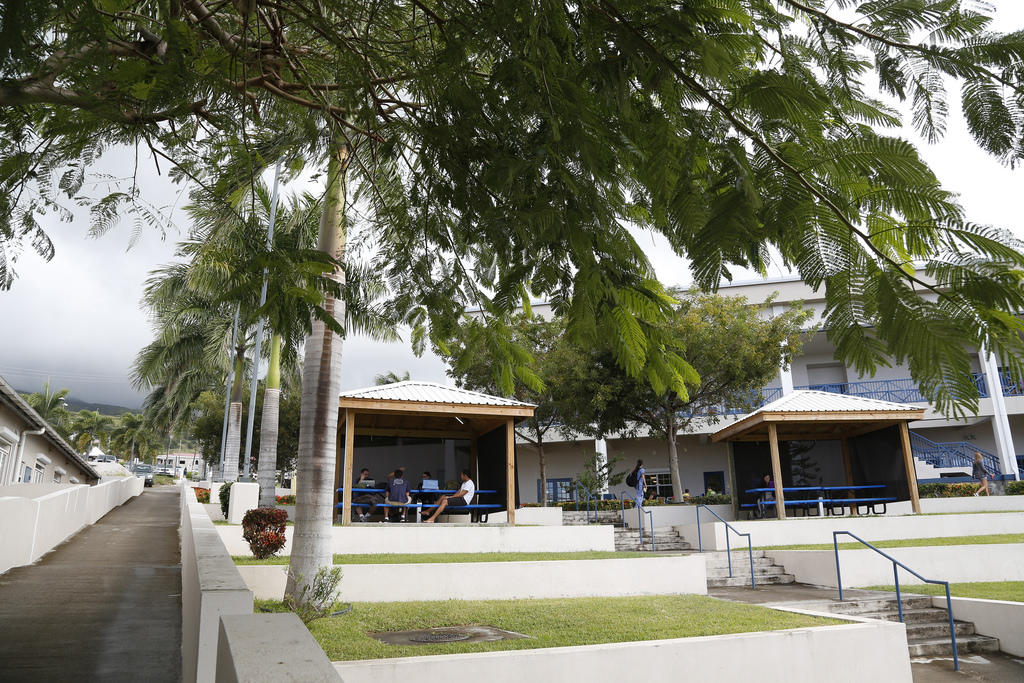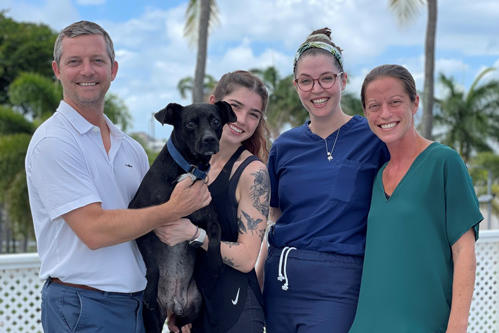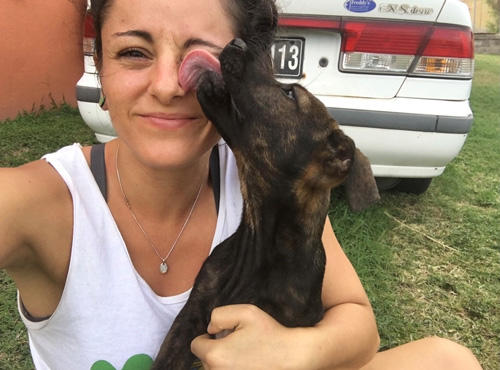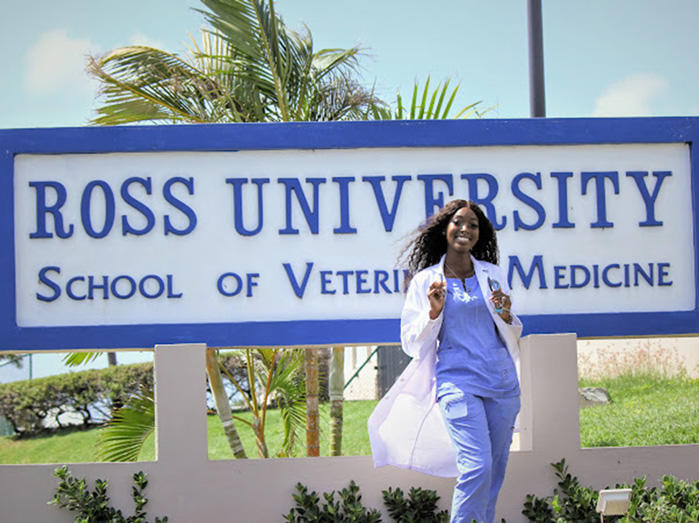During my five days in Nicaragua I assisted with three small animal days and one community day. During the small animal days, we worked in the Central America Training Center that World Vets has stationed in Managua, Nicaragua. During my time there, I was able to complete 8 surgeries compiled of canine and feline spays and neuters along with a tumor removal from 1 dog.
Each day, my surgical partner and I worked with one of the licensed DVM’s that was on our trip. It was a very eye-opening experience, as I got to see how each DVM does a procedure such as a spay, differently. It was my first time doing surgery on live tissue so, I was able to learn imperative tissue handling techniques as well as start a personal surgery log where I was able to record different closure and ligation techniques.
The animals on Nicaragua are just as loved as those in the states but their day-to-day life is much different as most of them are free roaming and not on monthly preventative medication for parasites. This posed some difficulty to us as surgeons as most of them were probably suffering from tick borne illnesses. For example; the first surgery I did was a young female dog that was being spayed. As we opened the abdomen, we noted what seemed like slightly excessive hemorrhage. As we got further into the abdomen and were starting the procedure we noted hematomas in the broad ligaments. This was a huge learning experience for me as I learned how to handle friable diseased tissue and experience the importance of properly tied ligatures. I was also able to castrate a young dog that was a cryptorchid. It was an amazing learning experience as I got to do all of these surgeries by myself while having a licensed DVM scrubbed in and ready to go if I had any questions or needed assistance.
During the community outreach day, we traveled by bus to a village nearby and provided physical exams for the cats and dogs in the village as well as deworming, rabies vaccines, and flea and tick preventatives. The other half of the group worked with the large animals providing hoof trims, physical exams, and wound care. I worked with the small animal group as that is my main interest.
It wasn’t all work though. We did take advantage of one day of sight-seeing around the city and the beautiful Lake Nicaragua. We all stayed in a big rented house so it was very nice talking to people in the veterinary community from all walks of life and experience levels. We also had veterinary technician students on the trip that did the patient preparation for surgery. So, it was great learning to work with a full veterinary team in a practice setting.
I am very grateful that I was able to receive funding from the Student Chapter Student Chapter of the American Veterinary Medical Association (SCAVMA) to make this trip possible for me. I learned so many valuable skills and make a lot of important networking connections for my future. I hope that I am able to do one more trip like this during my clinical year as, the skills I learned are imperative for my future as a successful veterinarian.







